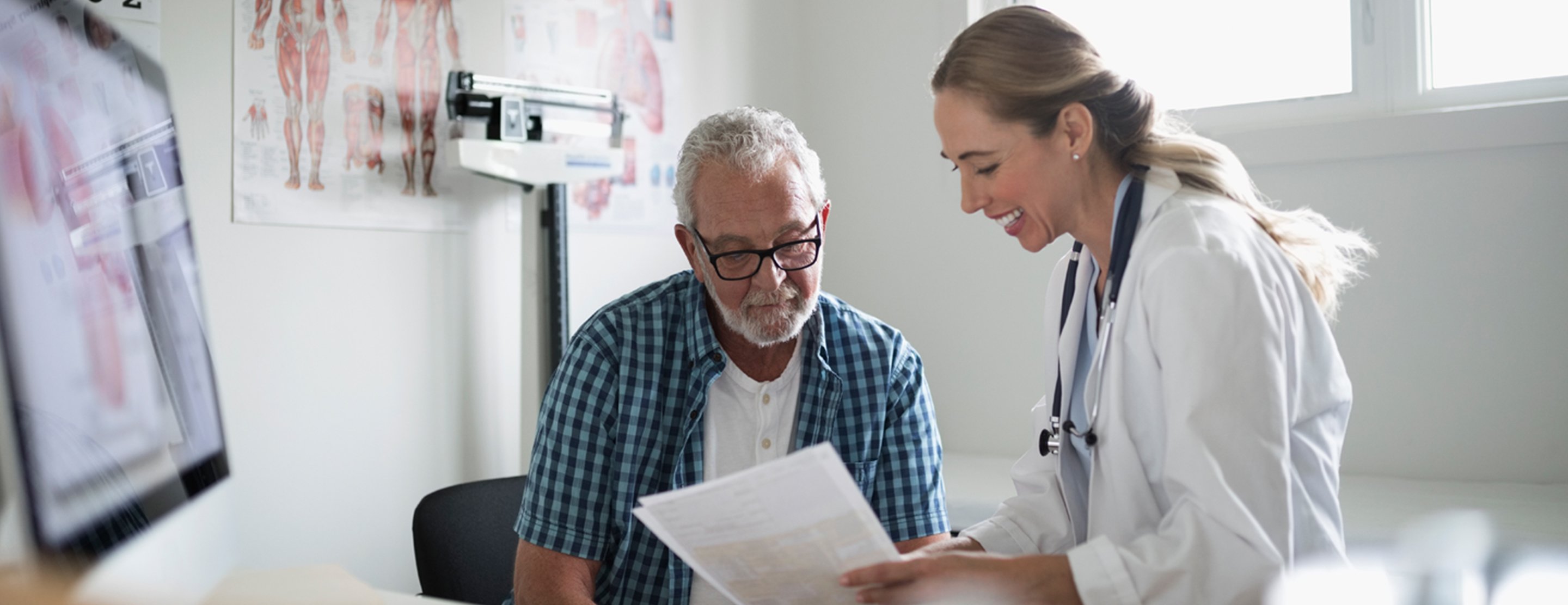Every patient is different, and no two doctor visits are exactly alike. That said, a little preparation can go a long way in making your visit to UCSF as smooth, stress-free, and helpful as possible.
Whether you're coming in for a routine checkup or seeing a specialist for a complex health issue, here are some ways to help you make the most of your appointment.
1. Follow any instructions from your care team.
You may receive special instructions before your appointment – like what to bring, how to prepare, or what to do ahead of time. This might include gathering medical records, past test results, or family health history.
Take time to read or listen carefully to the instructions. Jot down notes to help you remember. And if you're unsure about anything, feel free to call the clinic and double-check.
2. Bring your insurance card and a photo ID.
We will need to confirm your insurance when you check in.
3. Write down ahead of time what you want to discuss.
Doctor visits can go by quickly, and it's easy to forget things you meant to ask or mention. Before your appointment, think about:
- Questions you have
- Symptoms you've noticed or other things you want your doctor to know about
- Any health goals you want to talk about
Bringing a clear, focused list to the appointment will help you and your doctor make the most of your time together.
4. Bring a list of all your medications.
The list should include exact names and dosages. Don't forget over-the-counter meds, herbal remedies, or vitamins since they can interact with medications your doctor may prescribe.
5. Ask a family member or friend to join you.
Having someone there to take notes, remember key points, and even advocate for you during the visit can be helpful. That's especially true if you’re dealing with a complex condition or difficult decisions.
6. Arrive early.
Bay Area traffic can be unpredictable, and there may be paperwork to fill out when you arrive. Give yourself extra time to get to the clinic and check in comfortably.
7. Expect some downtime.
Some visits may include waiting, additional tests, or follow-up with other providers. Even if your appointment seems simple, it's a good idea to bring a snack and something to read, watch or listen to.
8. Be open with your doctor.
Your doctor is here to help, not judge. Be honest about health information, symptoms, things in your life that may affect your well-being – even if it feels awkward or embarrassing. Good communication is key to good care.
If something doesn't feel right, speak up. And if you don't understand something, ask for clarification. You can always ask your doctor to slow down, explain things in simpler terms, or repeat information.
If your English is limited or your speech or hearing is impaired, let us know. We can provide you with interpreters and other communication support services.
9. Don’t hesitate to ask questions.
Bring your list of questions and refer to it during the visit. If new questions come up during your appointment, ask them! There are no silly or wrong questions. We want you to feel informed. If you’re dealing with cancer, see our “Questions to ask your cancer doctor.”
10. Take notes.
Bring something to write with, or use your phone or tablet to take notes or record the conversation. If you have someone with you, they can help capture the important points. If you're on your own, just do your best – even a few notes can be helpful later on when your memory of the visit might be fuzzy.






